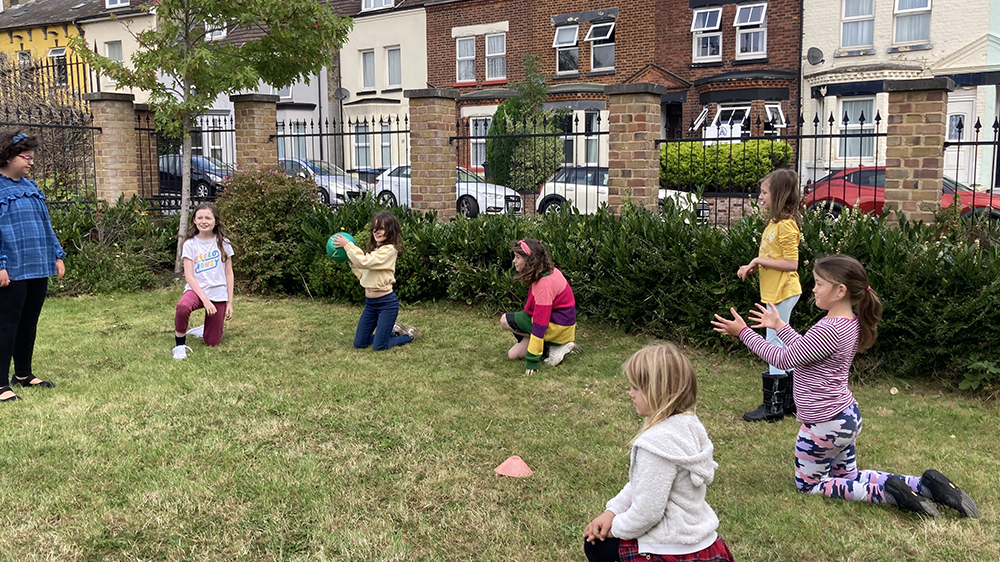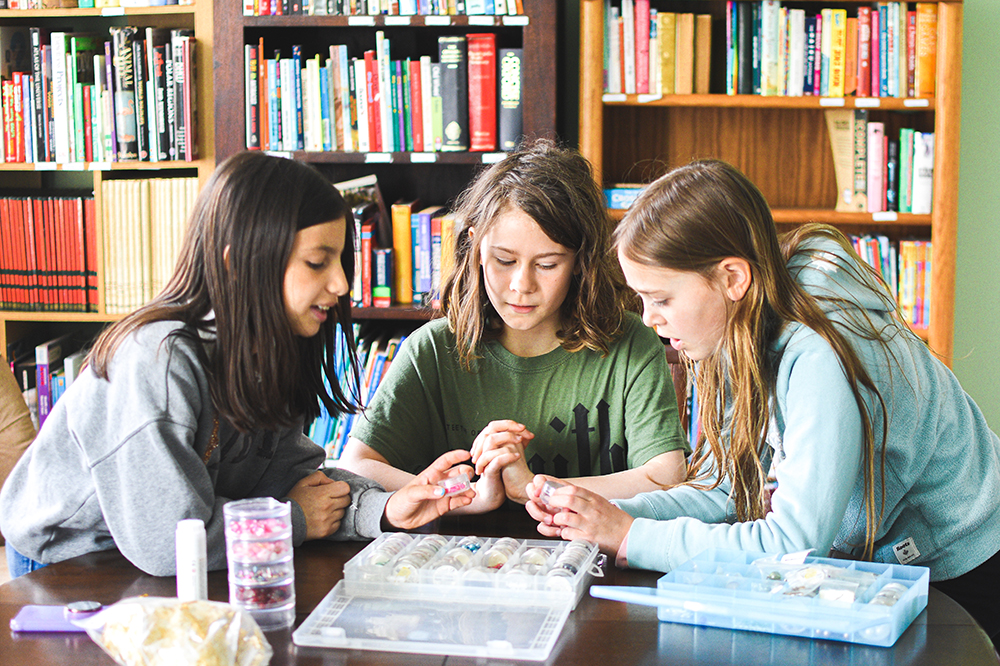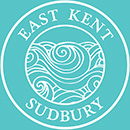What do young people learn when they go to school? In a conventional school what young people are learning seems clear, the timetable sets out what lessons are taking place and when and the curriculum dictates the content of those lessons. But teaching and learning are not the same thing. You cannot assume that just because content was covered that all of the students present took away the same messages. We’ve all had the experience of being present for a talk or watched a documentary or even read a book and realised afterwards that our minds were elsewhere and that the information was just washing over us. A talented teacher is sensitive to this and knows when to change tact, but self-directed education largely avoids this problem altogether as students seek information as and when they need it. They also know when they need more practice or clarity and when they have satisfied their curiosity and its time to move onto something else.
In a previous post ‘5 Myths about education you learnt at school‘ I discussed the hidden curriculum; all the other messages that young people may be taking away from school not as a result of the content of lessons but from the structure of the school itself and the way in which information is imparted to them. These are the lessons that we are trying to not just avoid but actively un-do at EKS. But without a compulsory timetable and standardised curriculum it is less clear what our students are learning, especially if the activities they have chosen to spend their time pursuing don’t resemble those we usually associate with education like research, projects and classes. So what are young people learning at self-directed democratic settings like EKS?
[embedyt] https://www.youtube.com/watch?v=YoE480mzrk0[/embedyt]This question cuts to the heart of what education is for. Last week, we attempted to answer this together as a community. We asked our students what is it that you hope you will have learnt by the time you leave us? How will you know you are ready to go out into the world and follow your dreams? From the enormous list that came back, together we were able to distill the ideas into the core skills that we think are vital to leading a successful life. This is what students at EKS think are important and are learning and practicing everyday.
Independence
The ability to look after yourself, to cook and take care of your basic needs. To know how look after your health. To be equipped with skills and qualifications (or be ready to get them) to get a job that you enjoy and that supports you. To be able to manage your money, navigate the world and find things out when you need to.
Responsibility
To be ready and able to take responsibility for yourself and be a responsible member of your community. To live within the law, to understand our democracy and take an active role.
Social & Emotional skills
To be able to have successful and healthy relationships. To get along with others and work as a team. To understand and manage your own emotions. To be able to read other people’s emotions and treat them with compassion and kindness.
Mental Health
To understand and manage your own mental health. To know what you need and how to ask for help, how to handle fears, stresses and anxieties. To be able to cope with adversity and change.
Literacy
To be able to communicate effectively. To be able to access information and express yourself.
Numeracy
To be able to use numbers in everyday life and work, to quantify and calculate what you need.
Technology
To be able to effectively use technology to communicate, research and within everyday life and your chosen field of work.
Creativity
To be able to think creatively, to solve problems and innovate.
Self-Determination
To know oneself, to know what you like, how you think, work and learn best. To be able to make decisions. To have the motivation, confidence, courage and determination to chase after your dreams.
Our students also discussed the many specific skills and knowledge they personally value or want to learn related to their own interests and ambitions. But they expressed that it was skills like knowing what to do when you’re bored, getting along with others, solving problems and adapting to change that were most important to them, because it is these skills that would equip them to follow their interests and dreams whatever they may be.
How do they go about learning these things? What do self-directed young people do all day at settings like EKS? They play, they talk, they think, they experiment, they create, they try things out, they share, they ask questions, they take part in organised activities but mostly they make decisions. All day long they decide what to do and take responsibility for their choices. All day long they ask themselves what do I want to do now and how do I go about it? Through endless decision making we see young people grow in confidence and in voice and bounce back from disappointments.

Sometimes they decide not to take part in a game or activity, maybe because they are busy already, maybe they think they won’t like it or it has nothing to offer them right now, maybe they’re scared of trying something new. As someone who cares about our students it can be hard to see them miss an opportunity I think they’ll enjoy. We want the people we care about to get the most out of life. It’s tempting to suggest and nudge, and sometimes when I think they want that from me and I know they have the confidence to ignore me if they want to, I might do that. But when I do that, I weigh up the risk of them not doing something they may enjoy vs the risk of them not making their own choice and learning from that. I also remember that a nudge from me bears the weight of an adult and the power imbalance that goes along with that in our society where children and adults are not usually considered equals. Despite all we do at EKS to undo that imbalance, it exists in the world our students live in and will creep back into our relationships too if not guarded against.
I also reflect on the times in my life when I turned down an opportunity or quit an activity, sometimes that decision left relief and sometimes regret, and how that reflection affects my future choices. I also think of times when I have urged my children to try or keep going with something which seemed against their natural instinct and the tension that caused between us. I remember how my daughter took up piano lessons then after four weeks wanted to stop – she’d had enough for now and anyway could learn as much on her own. Several weeks later, a fresh wave of commitment appeared, determined to further a passion in performing arts she asked to restart the lessons and attacked them with a zeal I’d not seen before. Not every dropped activity will go that way, I certainly never returned to Judo or trampolining or violin. But I don’t regret it. And I remind myself that my children are not me and their decisions are not my decisions.

Just as the information our students absorb from the things they do pales in importance in comparison to learning how to learn. The decisions our students make pale in comparison to learning how to make decisions.
Today, young people at EKS made decisions, all day. It was a good day.
